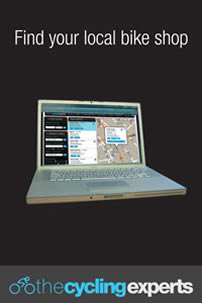More people on bikes could help UK avoid ‘climate crunch’
25/11/2008 News‘A Low Carbon Transport Policy for the UK’ was carried out by consultants MTRU, and sponsored by the Campaign for Better Transport.
The research comes as the Climate Change Bill passes into law and the Committee on Climate Change prepares to release its proposal for UK carbon budgets up to 2022. Transport is likely to be a key target: it accounts for 28 percent of UK carbon dioxide emissions and with growing road traffic and flights is expected to increase.
Current government policies, including intensive improvements to vehicle efficiency, will achieve less than 5 percent reduction in CO2 by 2020, says the Campaign for Better Transport, formerly known as Transport 2000. The research sets out a package of measures which taken together will:
Cut overall CO2 emissions from transport by 26 percent by 2020 on 2006 figures and cut car traffic by 15 percent.
The package includes a range of measures on business travel, including commuting and freight, and funding to switch local car journeys to walking and cycling. Longer term measures include a new national travel card, parking controls in new developments, changes in planning guidance and tax changes to reward low-carbon travel.
Stephen Joseph, the executive director of Campaign for Better Transport, said:
“If the Government is serious about tackling climate change, it must do something about rising emissions from transport. This research tells us where it must take action, and how it can benefit the public. The measures to cut carbon emissions from transport will also help cut congestion, regenerate communities, improve health and give people real and cheaper travel choices. We will be pressing the Government to adopt these measures as part of their strategy to cut carbon emissions”
MTRU’ director Keith Buchan, who carried out the research, said:
“The package in the report is not just about tackling climate change; it would help put the UK economy on a more secure long-term path to recovery. The credit crunch has been far worse because warnings were ignored and the opportunity for early, less painful, action was missed. We should learn the lesson and act early to avoid a climate crunch.”
‘A Low Carbon Transport Policy for the UK’ argues for the transfer of short car journeys to walking and cycling.
Car journeys under five miles account for 20 percent of passenger transport CO2 – shifting some of these to walking and cycling will help cut congestion and obesity and improve health too.
“It can be done,” stresses Campaign for Better Transport: “Many European cities have low levels of car use: in Vienna, Amsterdam, Frankfurt, Munich and Brussels, cars account for 40 percent or less of journeys, due to planning and transport policies and support for cycling and walking.”
To treble the number of cycle journeys and boost walking journeys, the Campaign for Better Transport wants the Government to act on the following:
Introduce a “smarter choices” fund to help change travel behaviour, including specific initiatives on school travel (walking, cycling, school safety zones and school buses), shopping (home delivery, local collection and local sourcing) and leisure (entrance/public transport tickets for sporting/music events, support for local parks), as well as better information and marketing of travel choices
Make walking and cycling a real option for short journeys: introduce a new “walkable streets” fund, create cycle priority networks and bike hire schemes in major towns and cities, reform street priorities and street design to increase safety
Use eco-towns and eco-developments to show it’ possible to create developments where people can choose not to own a car
Expose real transport costs of other decisions: Government decisions on the location/centralisation of health, education, leisure and other facilities (like post offices) should take full account of increased transport costs and emissions and the results of such analysis should be made public.




